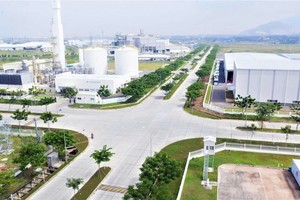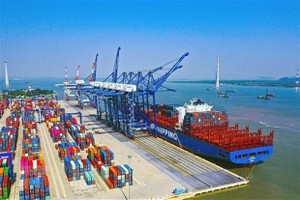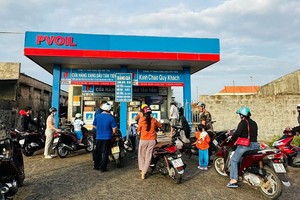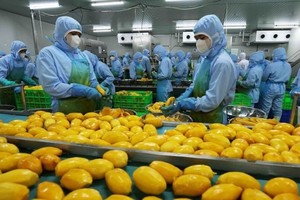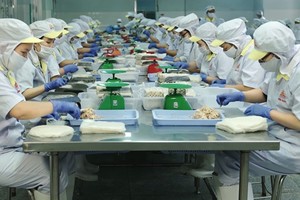At the present, there are two oil refineries in Vietnam, consisting of Dung Quat under the Binh Son Refining and Petrochemical Joint Stock Company (BSR) and Nghi Son. Of which, Dung Quat Oil Refinery needs around 7 million tons of crude oil annually in order to stabilize production while domestic supply merely meets 70 percent of its need and the rest 30 percent must be imported.
However, domestic crude oil source tends to decline so the demand to import crude oil will climb in the future. Representative of BSR said that this is an optimistic signal to approach Azeri crude oil source, the oil with largest reserves in Azerbaijan, whose quality is similar to crude oil exploited from Bach Ho oil field in the Cuu Long basin of the East Sea and can be processed with high mix ratio.
In reality, after the two oil refineries Dung Quat and Nghi Son were put into operation commercially, Vietnam, from a country which exported all of its crude oil and imported 100 percent of fuel products, has gradually gained activeness in providing a part of domestic gasoline and oil supply.
The high need for crude oil of these two oil refineries has caused import and export turnover of crude oil to be reversed. The amount of exported crude oil has gradually declined whereas import demand for crude oil has highly surged. Last year, Vietnam became a net importer of crude oil for the first time. according to a report by the General Department of Vietnam Customs, in the first eight months of this year, the country has imported 5.48 million tons of crude oil, worth US$2.6 billion.
Currently, Dung Quat and Nghi Son oil refineries have been meeting around 50 percent of domestic demand for gasoline and oil. It is forecast that when these two oil refineries run at full capacity, they will provide 82-92 percent of domestic demand. When using domestically-made gasoline and oil products, both distributors and consumers will receive benefits and fuel prices might lower.
However, in order for the fuel market to be stable, besides cutting import tariffs, it is necessary to abolish collection of regulation revenues for oil products, liquefied petroleum gas and petrochemical products consumed domestically to enable gasoline and oil manufacturers and traders to calculate their cost prices on their own in the direction of attracting domestic consumption. By doing that, competitiveness will be increased as gasoline and oil manufacturers and traders will have to build actually competitive selling prices to increase market share.



